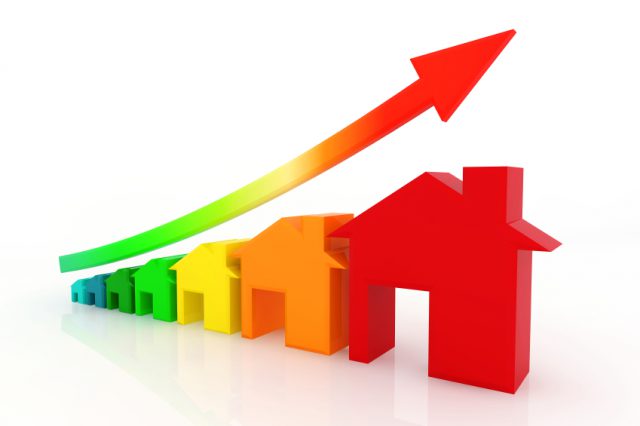House Prices Continue to Rise, Especially in London
House prices in the UK are continuing to rise, especially in London, which remains the region with the greatest house price growth, according to the latest UK House Price Index for April from the Office for National Statistics (ONS) and the Land Registry.
In the year to April, the average house price rose by 8.2%, down slightly from 8.5% in the year to March.
The main contribution to house price growth in the UK came from England, where the average property value increased by 9.1% over the past 12 months to reach £225,000.

House Prices Continue to Rise, Especially in London
Regionally, London continues to be the region with the highest average house price, at £470,000, followed by the South East, at £302,000, and the East of England, at £263,000.
The lowest average house price continues to be in the North East, at £122,000.
London was also the region that recorded the greatest annual house price growth, of 14.5% in the year to April.
The East of England, at 13.6%, and the South East, at 12.3%, also experienced strong annual growth.
The lowest annual growth was seen in the North East, where prices rose by just 0.1% over the last 12 months.
The CEO of estate agent Marsh & Parsons, David Brown, comments: “This new, combined house price index gives a more accurate picture than ever before, given the inclusion of cash sales and new dwellings, along with average price calculations that are less liable to volatility. The revised methodology doesn’t scramble the signal, however; house price growth continues the strong performance it has shown over the past two-and-a-half years, despite a slight calming since March.
“The rate of house price growth in the capital has been overshadowed at various junctures over the past year by strong showings from the East of England and the South East, but London is top dog once again. A truly world-class destination like London may not always be at full throttle, but it never loses its lustre.”
Additionally, the Managing Director of property firm Stirling Ackroyd, Andrew Bridges, says: “London’s property crown is intact – for now. Unparalleled growth in house prices and unwavering demand mean a home in the capital now demands more than double the UK average. High prices aren’t putting off buyers, with the capital’s diverse variety of homes proving hard to resist. But this could be the calm before the storm.
“A potential Brexit is producing jitters this June, and the London property market is the most vulnerable to this new anxiety. The top-end of the capital’s housing market has been stuck in a slowdown for a while now, with a 2.4% annualised fall in the last quarter of 2015. And this is worsening, as buyers and sellers wait to see the referendum result – at least for the top-end of London’s luxury market.”
He adds: “But this is a temporary drop, and London’s ability to bounce back is in no doubt. Buyers may be flirting with the idea of buying in the cheaper and newer areas around the capital. But London’s overall draw, for both domestic and international buyers, is undimmed. And the challenge of political developments will be unable to thwart the capital’s global property reign.”









